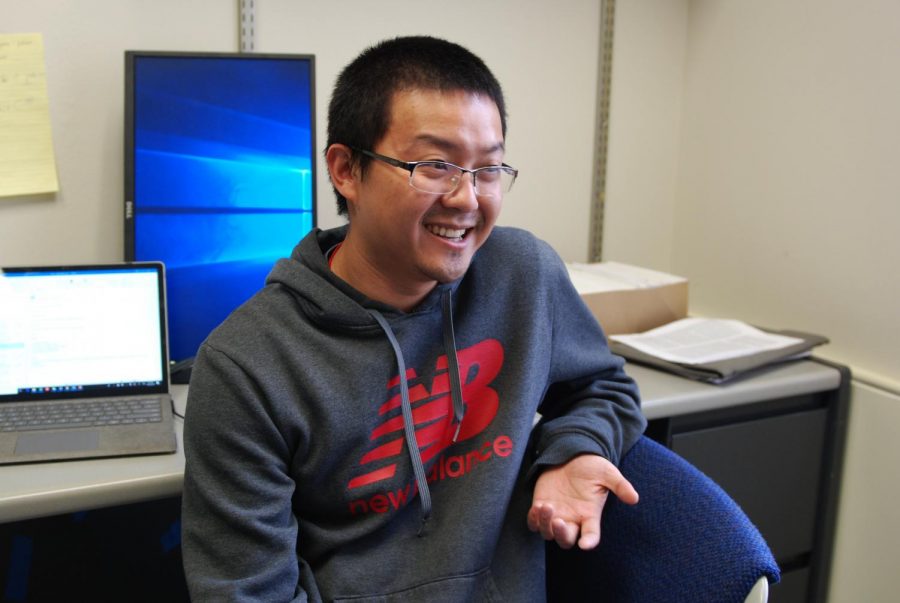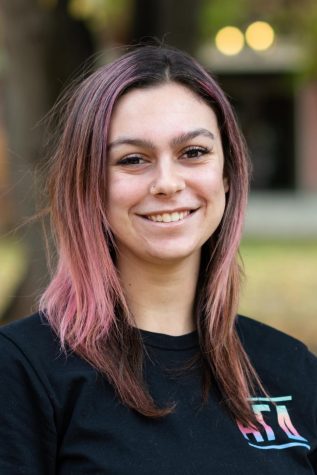Student does market research on gift timing
Greetings, coffee cards used to find consumer gift-giving preferences
JULIA KAMINSKI | THE DAILY EVERGREEN
“I just feel like it is meaningful and useful for both academic research and for students’ well-being,” graduate student Sheng Bi said as he discusses the research results from his gift-giving project and the psychological connection.
October 28, 2018
A research activity created by a WSU graduate student aims to find out consumer preferences when giving gifts and bring students free coffee as well.
The study, designed by graduate student Sheng Bi, collects data about what affects a person’s preference for the time and day when they send gifts.
“I just feel like it is meaningful and useful for both academic research and for students’ well-being,” he said.
Bi said he started the activity to discover more about what things affect people’s preference for different days and times when they are sending gifts. He said he also looked into other factors that may influence a person’s preference for the timing of their gifts, such as gender.
His project, Special Coffee for Your Special Friend, allowed students to send a friendship greeting card along with a coffee refill coupon to someone as a surprise, he said.
Bi said he chose to use friendship cards in the study because he wanted to do something on campus for students.
“They feel super surprised,” Bi said, “and that’s the coolest thing of this whole activity because they don’t know until we send them the message that a friend gave them the card.”
Andrew Perkins, Center for Behavioral Business Research director and Bi’s adviser, said the goal while doing research is to make the reaction real.
“In this case, the people that participated wrote their own notes to their friends,” Perkins said. “They could write whatever they wanted to on those cards and it was really cool.”
To study what affects a person’s preference for time when sending gifts, students chose which date they would like to send their card, Bi said. The data was recorded for the consumer behavior research study about time, he said, and cards were sent out Wednesday.
In addition to helping improve the understanding of consumer preferences when gift-giving, Bi’s study also gave WSU students a chance to spread positivity by giving gifts to friends, he said.
Academic research is often criticized for being too abstract and too distant from the ordinary person, Bi said.
“This is evidence saying no,” Bi said. “We care about students. We care about the common people.”
The project was run through the Center for Behavioral Business Research, the main lab for marketing research in the Carson College of Business, Perkins said.
The lab gives undergraduate students who are interested in doing graduate work the opportunity to volunteer, he said. It consists of a virtual reality lab, computer lab, behavior lab and retail space.
“The whole lab and whole department really supports our academic research,” Bi said.










